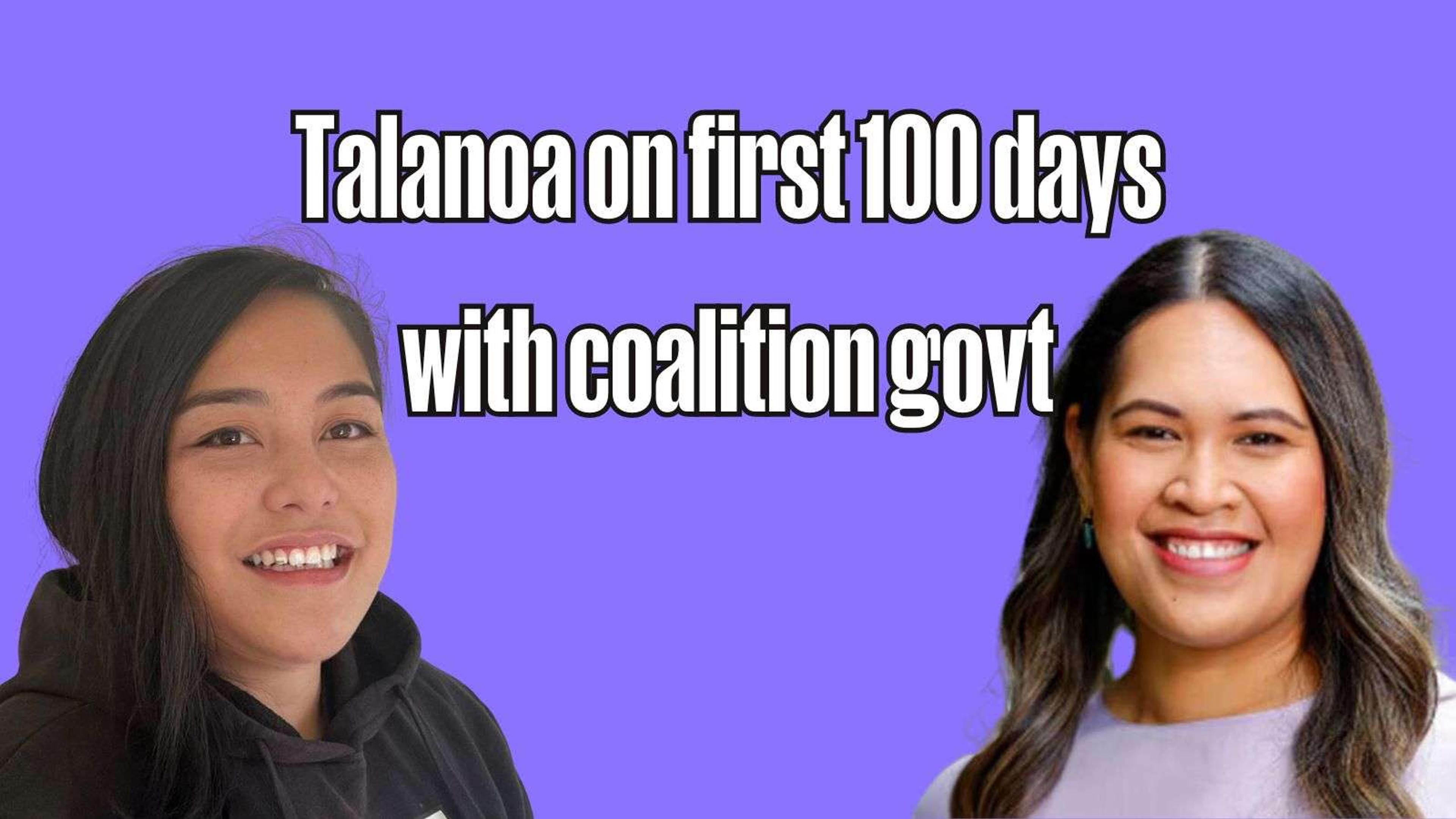

Simulata Pope (left) and Angee Nicholas (right) talanoa on 531pi.
Photo/MoE (left), National Party (right)
School lunches get a grilling on Pacific Mornings political panel
National Party electorate candidate Angee Nicholas and Tongan Youth Advisory spokesperson Simulata Pope talanoa over the coalition government's past 100 days.




Inked across lands: How Pacific tattoo art is thriving in Germany

US funding cuts threaten to 'dry up' future of Pacific scientists - expert




Inked across lands: How Pacific tattoo art is thriving in Germany

US funding cuts threaten to 'dry up' future of Pacific scientists - expert
A youth advocate is criticising the government's plan to cut school lunches, saying it is inefficient considering its positive outcomes.
Associate Education Minister David Seymour recently called the free school lunch programme "wasteful", which some have criticised.
Speaking on Radio New Zealand, Seymour says free lunches have also failed to improve academic and attendance rates.
But during a Pacific Mornings political talanoa, with former National Party electorate candidate for Te Atatū Angee Nicholas, Tongan Youth Advisory spokesperson Simulata Pope says cutting it is actually more inefficient.
"We know that one in six children are running out of food within their households. Twenty-six per cent are Māori, and almost 37 per cent are Pacific children," Pope says.
The Ka Ora, Ka Ako Healthy School Lunches programme feeds more than 220,000 students, which is about a quarter of all New Zealand school pupils.
A report found between 2022 to 2023 more than one in three Māori and Pacific children lived in households where food runs out.
Additionally, over 20 per cent of children lived in households that often or sometimes ate less because of lack of money.
Nicholas says what needs to be understood is the "universal rule to deal with barriers to learning".
"It's hard to learn, and hard to study on a hungry stomach truly," Nicholas says.
"But this is part of the coalition agreement between ACT and National to deliver public services.
"So, improving the cost-effectiveness of school lunches is something maybe not everyone knew about but was something that was going to come up."
She says she agrees with Simulata's sentiments that no one wants kids to go hungry and that she has received feedback from Pacific people in her circles that the aforementioned universal rule should remain.
"In my view, there's nothing wrong with having a targeted approach to this."
Pope says the political and media landscape where many are pushing back against axing the programme highlights how the move is negligent towards providing efficient and preventative measures for uplifting educational success.
"If we already know that's what's happening on the ground with hungry children then I don't see what this particular axing of the budget will do."
Pope says students have garnered healthier physical and mental states as a result of the programme.
In terms of the wasteful nature of free school lunches, Pope says 61 per cent of lunches are given to students to go with with while 21 per cent of lunches are given back to the community to reduce waste.
"It's always going back into the community, whānau and family. I find it very hard to believe it isn't working."
Watch the full talanoa view 531pi's Facebook page:
Nicholas on boot camps: 'A pathway to turn lives around'
Children’s Minister Karen Chhour said a pilot would be operational by the middle of the year, and Oranga Tamariki would oversee it.
It will have a military-style component as well as a rehabilitative and trauma-informed care approach to help reduce their risk of re-offending.
Nicholas says the key part of this is understanding it is targeted towards "the most serious and persistent youth offenders".
"We're not writing anyone off, the goal of making sure that we help young offenders understand that there are consequences.
"We are giving them some sort of pathway to turn their lives around."
However, Pope says the overwhelming evidence on boot camps failing to resolve youth offending has been ignored.
"We're talking about only 160 odd in the country. There's 1.3 million children or young people in the country," Pope says.
"We're changing the law for 0.0123 per cent of the country rather than understanding the drivers of what youth offending is.
"The chief scientist, the work of children's commissioners, the work of Oranga Tamariki themselves have noted the drivers of youth offending."
She says that the causes behind youth offending point towards poverty, mental health provisions and under resourced state care systems. She also says that the government's boot camp plan will not go the way they think it will.
Pope also acknowledges the chaos and seriousness of the offences committed by particular youth is detrimental but, "we're talking about young people here".
"We're talking about less than 18-year-olds who at a very early stage have seen domestic violence, suspension and exclusion from school, racial discrimination in the system and poverty."
She says alternative solutions include preventative measures such as the first one to two thousand days of a person's birth that long-standing issues are addressed.
"Tackling Pacific and Māori intergenerational trauma and impact, and for the systems to front up.
"I know that National hasn't been the only government a part of that impact but they're also the current government of the day as well."